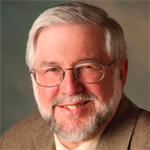Because we are role models, we promulgate a certain level of care, as exemplified by the completeness of our patient evaluations. If we, as rheumatologists, don’t hold the line, what kind of example are we setting for those healthcare providers not so versed in the disorders for whose treatment we are so dedicated?
Consequences of Deviation
Are there rheumatologists who don’t adhere to minimal standard of care recommendations? Unfortunately, there appear to be, and I believe that to be unacceptable. Patients have suffered irreversible, preventable outcomes when DMARD monitoring has been limited to six-month intervals. Those patients who declined timely appointments (some to save the cost of several physician visits a year) certainly don’t find the toxic results cost effective. When they or their survivors take legal action, the rheumatologist has no defense—because the practice did not meet usual and customary standards.1 If primary care physicians follow that example, does the rheumatologist have shared liability?
If rheumatologists do not stand up to patient demands that compromise safety, what kind of example do we set for primary care physicians with typically quite busy practices? It takes time to change patient perspectives when the patient is fixed in their demand. It takes integrity to deny unreasonable patient demands or to discharge such patients from a practice.
In the words of Benjamin Franklin, “We must all hang together, or assuredly we shall all hang separately.” If some rheumatologists deviate from the standard of care, interacting primary care physicians will get the perception that such behavior is so acceptable that they will fail to recognize the quality of care provided by rheumatologists who adhere to the standard of care.
The frequency of complications (related to failure to adhere to such standards) may lessen primary care physicians’ appreciation of what rheumatologists have to offer and reduce appropriate referrals, to the detriment of all concerned—rheumatologists, primary care physicians and the patients we all serve.
 Bruce Rothschild, MD, is professor of medicine at Northeast Ohio Medical University and provides rheumatology services at the Indiana Regional Medical Center. He is a Fellow of the American College of Physicians, the ACR and the Society of Skeletal Radiology and was elected to the International Skeletal Society.
Bruce Rothschild, MD, is professor of medicine at Northeast Ohio Medical University and provides rheumatology services at the Indiana Regional Medical Center. He is a Fellow of the American College of Physicians, the ACR and the Society of Skeletal Radiology and was elected to the International Skeletal Society.
Reference
- Personal communications.



